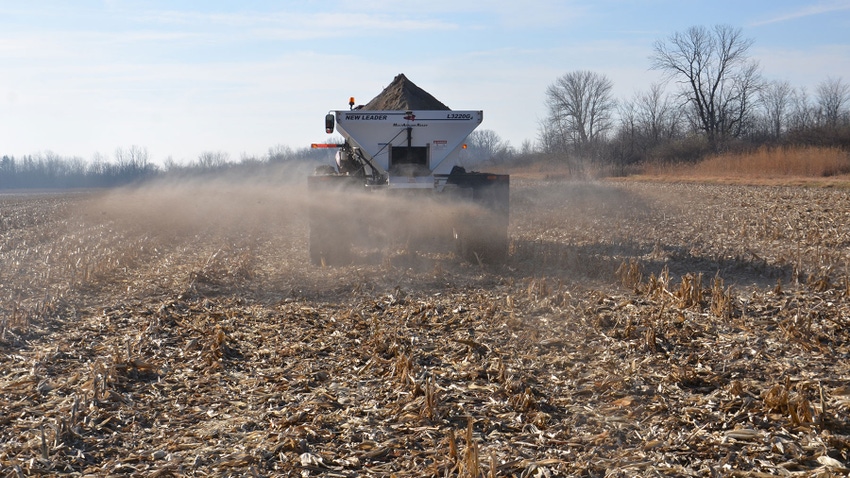September 25, 2023

We have some fields in the 5.5 to 6.0 pH range. We’re going to apply gypsum this fall to supply sulfur. Will that correct pH? Or do we need lime, too?
The Indiana certified crop advisers panel answering this question includes Steve Gauck, regional agronomy manager for Beck’s, Greensburg; Bryan Overstreet, Conservation Cropping Systems Initiative agronomist, Valparaiso; and Dan Ritter, central region agronomist, Dairyland Seed.
Gauck: Gypsum is a great source of calcium and sulfur. Gypsum is calcium sulfate and is not acid soluble, so it does not change pH. It will shift calcium levels higher and lower magnesium levels in heavy clay soils. Soybean yields will increase because of the calcium in gypsum, but it is short term. Correcting your pH with lime will give you long-term yield gains. I like to see soybean fields testing above 6.3 pH. Target your lime this fall if possible. Sulfur in gypsum is soluble, so an application in the spring will give you more access to the sulfur component.
Overstreet: Yes, you will need to add lime to change the pH. Even though gypsum contains calcium, it reacts differently to the soil than lime, therefore changing the pH very little. If anything happens, it may be that the gypsum application causes the pH to lower slightly due to the sulfur in the gypsum.
Ritter: Gypsum is a good source of calcium and sulfur. However, it will not change the pH of the soil. You will need lime as well to change your soil pH.
You May Also Like




